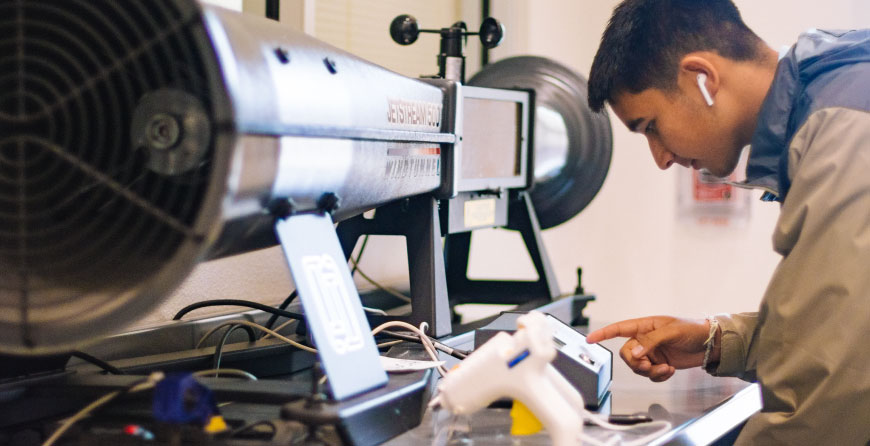Remember when a $100,000 salary felt like the ultimate career goal? In the world of artificial intelligence, that number is now just the starting line.
Today’s AI professionals are seeing offers that sound like they belong to professional athletes, not tech experts. The AI job market is on fire, creating a gold rush of AI career opportunities.
We are witnessing a complete recalibration of what a “good salary” means. Companies like Meta are reportedly offering top AI researchers compensation packages worth up to $300 million over four years.
This isn’t just a salary bump, but a bidding war. Tech giants are poaching talent from each other with jaw-dropping offers. Netflix recently posted an AI job with a salary range topping out at $900,000 for a single role!
So, what are these golden-ticket positions? And why is this demand exploding while other tech sectors face layoffs? Let’s break down the highest paying AI jobs in 2025 that are completely reshaping the career landscape.
Contents
- 1 A Look at the 15 Highest Paying AI Jobs in 2025
- 1.1 1. AI Product Manager
- 1.2 2. AI Research Scientist
- 1.3 3. Machine Learning Engineer
- 1.4 4. Chief AI Officer (CAIO)
- 1.5 5. AI Engineer
- 1.6 6. Deep Learning Engineer
- 1.7 7. AI Architect
- 1.8 8. AI Security Engineer
- 1.9 9. Computer Vision Engineer
- 1.10 10. Prompt Engineer
- 1.11 11. NLP Engineer
- 1.12 12. Data Scientist (AI-focused)
- 1.13 13. Generative AI Performance Engineer
- 1.14 14. Senior Solutions Architect (AI)
- 1.15 15. AI Consultant
- 2 Why Are the Highest Paying AI Jobs in 2025 So in Demand?
- 3 Final Words
A Look at the 15 Highest Paying AI Jobs in 2025
This salary data is a compilation from leading sources, including Levels.fyi, 6figr, and ZipRecruiter, reflecting total compensation where applicable.
1. AI Product Manager

- Salary Range: $150,000 – $900,000+
AI Product Managers are the crucial link between technical AI models and business success. They figure out how to turn a complex algorithm into a real-world, money-making product.
Netflix’s famous $900,000 role grabbed headlines, but this isn’t an outlier. At Meta, AI Product Managers average a total compensation of $352,000.
They are paid fortunes because they answer the most important question: how does this amazing AI technology actually make us money? This is one of the top AI career opportunities for strategic thinkers.
Also Read: These Top 20 Free AI Courses Make You Look Like a Pro at ChatGPT, Copilot, DeepSeek, and More
2. AI Research Scientist

- Salary Range: $130,000 – $489,000+
These are the visionaries pushing the limits of what AI can do. They develop the groundbreaking algorithms that become the next ChatGPT or Llama. Companies pay them staggering amounts because they are literally inventing the future.
Meta offers total compensation packages reaching $489,000. OpenAI, the creator of ChatGPT, pays base salaries up to $440,000, with total compensation often much higher. At Google’s DeepMind, senior researchers have reportedly seen offers as high as $893,000.
3. Machine Learning Engineer

- Salary Range: $120,000 – $440,000+
If research scientists are the architects, Machine Learning (ML) Engineers are the master builders. They construct and deploy the ML models that power everything from your streaming recommendations to self-driving cars.
This is where theory becomes reality. Meta offers base salaries that can hit $440,000, with total compensation for senior engineers reaching over $684,000.
Amazon isn’t far behind, with total packages reaching up to $391,000. They are the hands-on experts building the brains of modern AI systems.
4. Chief AI Officer (CAIO)

- Salary Range: $263,000 – $643,000+
This executive role didn’t exist a few years ago. Now, it’s one of the most powerful positions in the C-suite. The CAIO sets the AI strategy for the entire company, ensuring that AI initiatives align with business goals and are governed ethically.
The average CAIO earns around $351,766, but top earners at major corporations can pull in over $643,000. Their high salary reflects their immense responsibility in guiding billion-dollar AI investments.
5. AI Engineer

- Salary Range: $136,000 – $440,000+
AI Engineers are the versatile problem-solvers of the AI world. They design, develop, and implement a wide range of AI solutions, requiring a blend of software development, data science, and programming expertise.
At Meta, an AI Engineer can see total compensation packages of up to $451,000. Nvidia, the company powering the AI revolution, pays its AI Engineers an average of $186,121, with top packages climbing higher. This is one of the highest-paying AI jobs in 2025 for those who can blend multiple disciplines.
6. Deep Learning Engineer

- Salary Range: $203,000 – $290,000+
Deep Learning Engineers are specialists who work with neural networks, the most complex and powerful forms of AI. They are the minds behind cutting-edge systems for image recognition, natural language processing, and autonomous vehicles.
Nvidia, whose GPUs are essential for deep learning, is a top employer for this role. They offer total compensation packages ranging from $203,000 to $290,000.
7. AI Architect

- Salary Range: $196,000 – $320,000+
An AI Architect is like the master planner for a city. They design the entire framework and structure for a company’s AI systems, ensuring everything is scalable, reliable, and secure. They make sure all the different AI components work together seamlessly.
Microsoft offers its Solution Architects between $250,000 and $320,000, while Amazon pays top AI Architects up to $280,000.
8. AI Security Engineer

- Salary Range: $175,000 – $250,000+
As AI becomes more powerful, it also becomes a target. AI Security Engineers are the digital guardians who protect AI systems from threats like data poisoning, adversarial attacks, and privacy breaches. This role is becoming critical for national security and corporate safety.
Amazon pays its security engineers up to $250,000, and Microsoft offers salaries reaching $220,000.
9. Computer Vision Engineer

- Salary Range: $120,000 – $210,000+
These engineers build AI systems that can “see” and interpret the world. They power the technology behind self-driving cars, facial recognition, and medical image analysis. It’s a highly specialized field with a big price tag.
Meta, a leader in augmented reality, offers total compensation up to $210,000 for these roles. Tesla, which relies heavily on computer vision for its Autopilot system, pays an average of $161,000.
You may like: This Simple Trick Gave Me 15GB More Free Gmail Storage (Without Deleting a Single Email or File)
10. Prompt Engineer

- Salary Range: $95,000 – $270,000+
Three years ago, this job title didn’t exist. Now, it’s one of the hottest roles in tech. Prompt Engineers are experts at crafting the perfect questions and instructions (prompts) to get the best results from generative AI models like ChatGPT.
A good prompt can be the difference between a useless response and a million-dollar idea. This role shows how fast the AI job market evolves, with salaries already hitting $270,000.
11. NLP Engineer

- Salary Range: $107,000 – $231,000+
Natural Language Processing (NLP) Engineers build the systems that understand and generate human language. They are the force behind chatbots, translation apps, and voice assistants like Alexa and Siri.
The NLP market is projected to be worth billions, and the demand for these engineers is massive. Mid-level professionals average around $170,000, with top earners reaching $231,000 and beyond.
12. Data Scientist (AI-focused)

- Salary Range: $164,000 – $230,900+
Data Scientists have been in demand for years, but those with a focus on AI are in a league of their own. They use advanced machine learning and deep learning techniques to uncover insights and build predictive models that traditional methods can’t.
This AI specialization adds a huge premium to their salaries. Amazon pays up to $230,900, while Microsoft and Meta offer similar packages in the $220,000 to $230,000 range.
13. Generative AI Performance Engineer

- Salary Range: $150,000 – $200,000+
As companies rely more on generative AI, making these models fast and efficient is crucial. That’s where Performance Engineers come in. They optimize generative models to reduce costs, improve speed, and ensure high-quality outputs.
Nvidia is a leader in this space, offering salaries that can exceed $200,000 for engineers who can squeeze every ounce of performance out of their hardware.
14. Senior Solutions Architect (AI)

- Salary Range: $160,000 – $200,000+
These professionals work directly with clients to design custom AI solutions for their business problems. They are part technical expert, part business strategist, translating a client’s needs into a detailed technical blueprint.
Because they directly help drive sales and revenue, they are highly valued. Strategic roles at companies like Nvidia and Microsoft easily command salaries over $200,000.
15. AI Consultant

- Salary Range: $120,000 – $200,000+
AI Consultants are strategic advisors who help organizations figure out how to best use AI. They guide companies on everything from implementation to governance and risk management. Top consulting firms like McKinsey and BCG pay their consultants between $120,000 and $200,000.
However, experienced independent consultants can charge over $500 per hour, putting their earning potential much higher.
Why Are the Highest Paying AI Jobs in 2025 So in Demand?

The paradox of the current tech and AI job market is striking. We see headlines about layoffs, yet AI salaries are skyrocketing. Here’s why.
1. Jobs Are Transforming, Not Just Disappearing
Companies are using AI to automate older roles, like basic IT support or data entry. But at the same time, they are desperately hiring people who can build, manage, and optimize these new AI systems. It’s a massive shift.
A recent Stanford study found that while some entry-level jobs are shrinking, the demand for workers who can use AI tools is growing rapidly.
2. AI Skills Command a Massive Premium
The data is clear: workers with AI skills earn significantly more. Some reports show a salary premium of up to 43% for professionals with multiple AI skills. Companies are willing to pay this because AI-skilled employees can deliver huge productivity gains.
McKinsey notes that the talent gap is a major barrier for companies, forcing them to pay more to secure the experts they need.
3. Enterprise AI Adoption Is Now Mainstream
AI is no longer just for tech giants. Nearly 80% of organizations now use AI in at least one part of their business. This creates enormous demand for AI talent across every single industry. Healthcare, finance, manufacturing, and retail are all competing for the same small pool of experts, driving salaries through the roof.
4. Venture Capital Is Pouring Fuel on the Fire
In the first quarter of 2025 alone, a staggering $73 billion in venture capital was invested in AI startups. This money goes directly into hiring. Startups, armed with billions in funding, are competing head-to-head with Google and Meta for talent, creating an intense bidding war for top professionals.
5. AI Jobs Have Moved Beyond Silicon Valley
More than half of all AI jobs now exist outside of traditional tech hubs. This decentralization means companies in cities across the country must offer competitive salaries to attract talent. This has created a nationwide demand that further inflates compensation packages, creating a wave of new AI career opportunities across the board.
Final Words
While some jobs are being automated, a new class of high-paying roles is emerging for those with AI skills.
The companies offering these massive salaries are making strategic investments to secure the talent that will define who wins and who loses in the next decade.
This incredible window of opportunity is wide open right now. As more people learn these skills, the huge salary premiums will eventually stabilize. The massive paychecks we see today are a sign of a market in overdrive.
Securing one of the highest-paying AI jobs in 2025 is within reach for those who act now. Learn the skills, build a portfolio, and position yourself for the future. In five years, having AI skills won’t be a bonus; it will be a requirement.